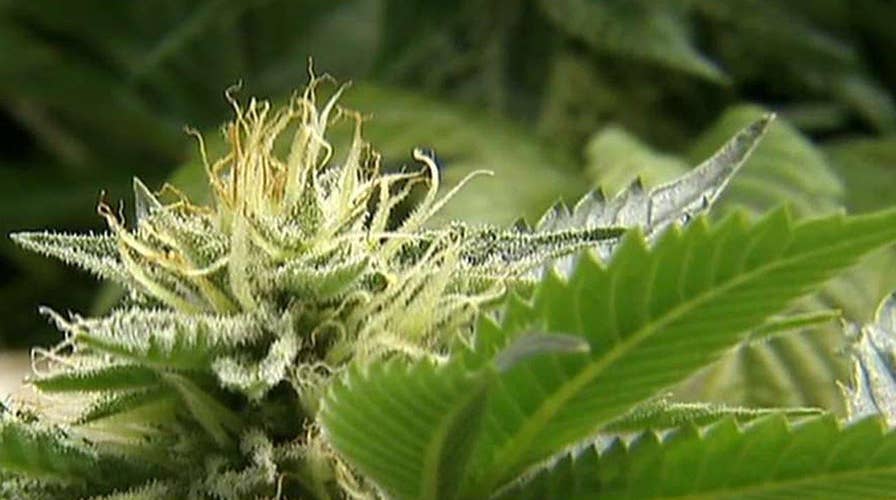Colorado may consider marijuana legal, but police don't have to take care of any weed seized in a criminal investigation, according to a state Supreme Court decision that upends years of evidence requirements hated by law enforcement agencies.
OFF-DUTY POLICE OFFICER RISKED LIFE TO HELP OTHERS AFTER TANKER EXPLOSION
The decision issued Monday reverses a 2013 lower court that police officers can't simply destroy pot after they take it as evidence in a case. Instead, police in Colorado have to care for the marijuana, either by keeping the plants alive or by returning dried marijuana in usable form.
Police agencies in Colorado have blamed the ruling for lax pot enforcement, saying they won't store marijuana evidence.
CLEVELAND OFFICER KILLED IN HIT-AND-RUN
The state's highest court reversed that decision Monday. In a 4-3 decision, the court sided with Colorado authorities who argued that the evidence requirement amounted to requiring police to distribute marijuana, a violation of federal law.
"Compliance with the return provision necessarily requires law enforcement officers to violate federal law," the court wrote.
The decision was penned by Justice Allison Eid, who has been mentioned as a possible Supreme Court nominee by President Donald Trump.
Dissenting judges argued that police are not violating federal drug law when they return marijuana property.
"A police officer who sells drugs to a target as part of an undercover sting is lawfully engaged in performing his or her duties. A police officer who sells drugs while off duty to supplement his or her income is not lawfully engaged in performing his or her duties," the dissenters wrote.
The case stemmed from the 2011 arrest of a medical marijuana patient accused of having more pot plants than allowed under state law.
The Colorado Springs man was later acquitted, but he lost more than 60 pounds of marijuana that police held during the case and returned moldy. The marijuana grower argued that the police had not treated his plants as personal property.
Colorado police cheered Monday's decision. They have long complained that the evidence rule made it impossible to investigate black-market marijuana growers, because they would be responsible for any plants they seized.
"There are times when we cannot confirm who is entitled to what," Greenwood Village Police Chief John Jackson said in a statement on behalf of the Colorado Association of Chiefs of Police.


